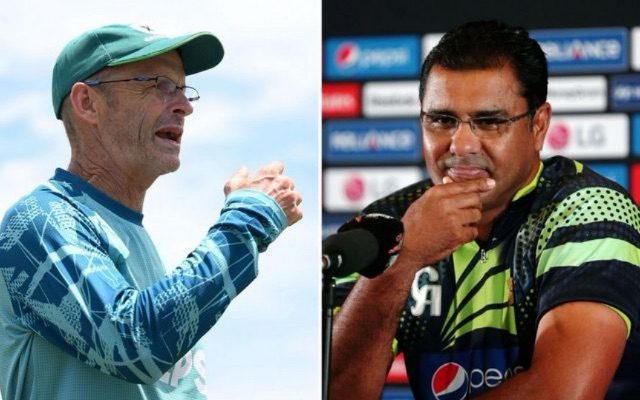
Cricket in Pakistan has a storied history, filled with legendary players, thrilling matches, and sometimes, surprising controversies. One of the recurring themes in Pakistan’s cricket saga has been the premature resignation of coaches—some due to internal politics, others citing personal reasons or dissatisfaction with the system. Here’s a look at five Pakistan cricket coaches who left their roles sooner than expected:
1. Mickey Arthur (2016 – 2019)
Mickey Arthur, a renowned South African coach, took charge of the Pakistan team in 2016 and was expected to lead the squad through a transformative phase. Under his guidance, Pakistan achieved significant successes, including the memorable Champions Trophy victory in 2017.
Despite these accomplishments, Arthur’s tenure ended on a sour note. The Pakistan Cricket Board (PCB) decided not to renew his contract after Pakistan’s dismal World Cup campaign in 2019. Though technically not a resignation, Arthur’s premature exit reflected his frustration with the lack of support from the PCB, highlighting the persistent challenges faced by foreign coaches in the Pakistan cricketing environment.
2. Bob Woolmer (2004 – 2007)
Bob Woolmer, another iconic coach, took over the reins of Pakistan’s cricket team in 2004. His innovative coaching style and emphasis on technology were appreciated, and he led the team to several notable series victories. However, his tenure ended tragically and controversially.
After Pakistan’s unexpected early exit from the 2007 World Cup, Woolmer was found dead in his hotel room. Initial reports raised suspicions of foul play, but subsequent investigations ruled his death as a result of natural causes. Though not a resignation in the traditional sense, Woolmer’s untimely demise marked a sudden and premature end to his role with the Pakistan cricket team.
3. Waqar Younis (2010 – 2011, 2014 – 2016)
Waqar Younis, a legendary fast bowler, had two separate coaching stints with Pakistan. His first tenure from 2010 to 2011 ended when he resigned, citing personal reasons, amid reports of internal conflicts and team management issues. He returned in 2014, promising to rebuild the team with a focus on grooming young talent.
Despite moderate success, Waqar resigned in 2016, expressing his disappointment with the PCB’s handling of team affairs, particularly after Pakistan’s poor performance in the T20 World Cup. His resignation underscored the difficulties local coaches face in dealing with the administrative complexities of Pakistan’s cricketing setup.
4. Mohsin Khan (2011 – 2012)
Initially appointed as a temporary coach in 2011, Mohsin Khan, a former Test cricketer, took charge during a turbulent period. Surprisingly, he led Pakistan to a historic 3-0 Test series whitewash against England, which was then the No. 1 Test team in the world.
Despite his success, Khan stepped down in 2012 when the PCB decided to bring back Dav Whatmore as the head coach. Khan’s departure, though officially not a resignation, was a clear indicator of the uncertain environment Pakistan’s coaches operate in, where success does not always guarantee job security.
5. Dav Whatmore (2012 – 2014)
The Australian coach Dav Whatmore took over in 2012, hoping to bring consistency and professionalism to Pakistan’s cricket team. While he had some successes, including Pakistan’s Asia Cup victory in 2012, Whatmore’s tenure was marked by criticism over the team’s inconsistent performances.
In early 2014, he chose not to renew his contract, effectively ending his coaching stint prematurely. His exit pointed to the difficulty foreign coaches face in understanding and managing the unique pressures and dynamics of Pakistan’s cricketing culture.
Coaching Pakistan’s national cricket team is often described as one of the most challenging jobs in the cricketing world. Internal politics, public scrutiny, and the unpredictable nature of the team make it a high-pressure position, leading to several coaches resigning or leaving before completing their terms.
These premature exits reflect not only the complexities within the Pakistan Cricket Board but also the immense expectations placed on coaches to produce consistent results in a volatile environment.
Get the latest cricket news here, like us on Facebook, and follow us on Twitter and Instagram for more such updates.






